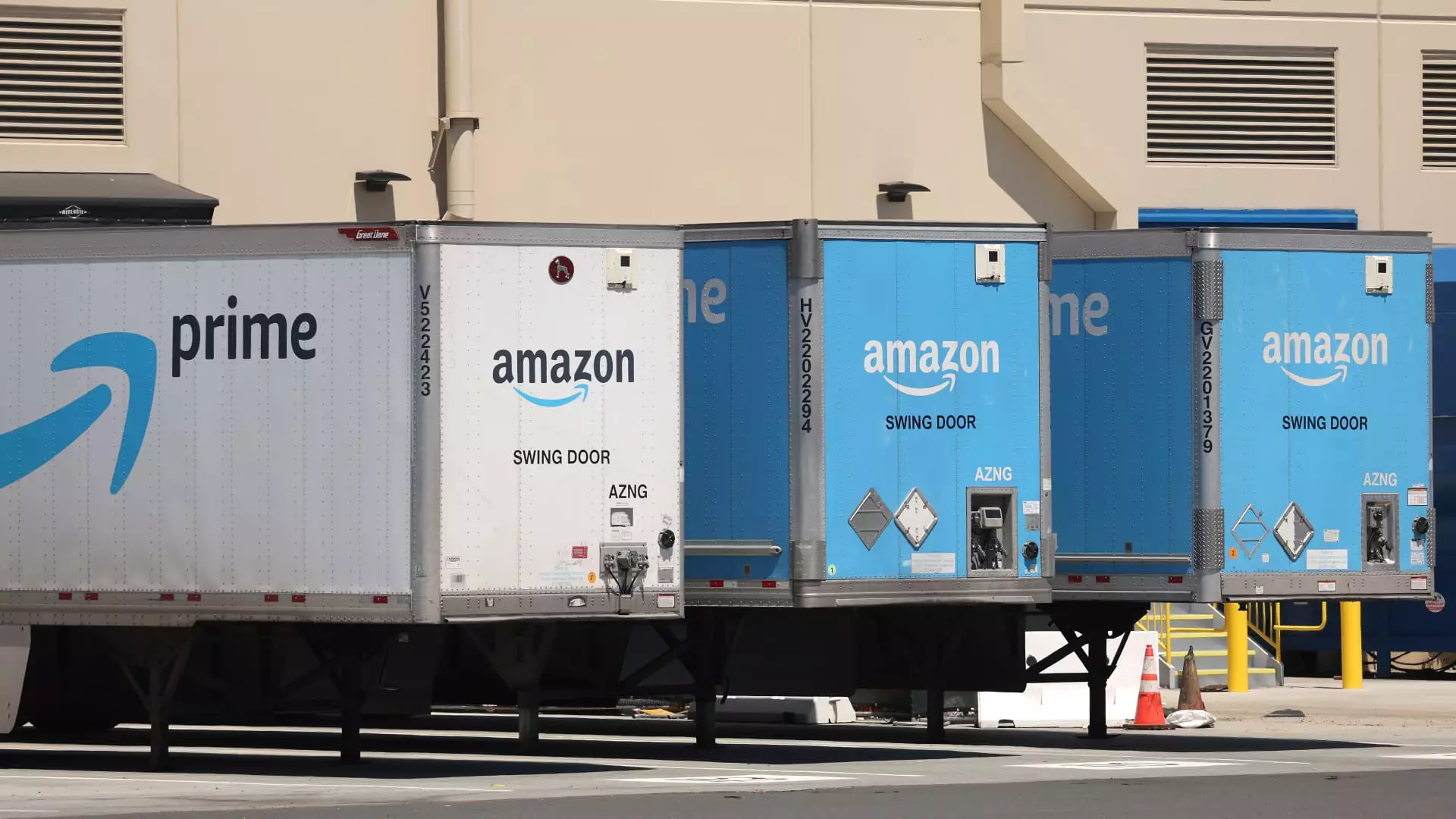In a startling revelation, the U.S. Department of Justice has exposed an expansive network of organized crime encapsulating the grim realities of America’s logistics sector. The case revolves around an Armenian crime ring alleged to have siphoned an astonishing $83 million worth of merchandise from Amazon by masquerading as legitimate truck drivers. This scandal unfolds amid a broader context of rampant cargo theft, raising pressing questions about the vulnerability of supply chains and the growing sophistication of criminal enterprises.
Cargo theft is not a mere nuisance; it is a systemic issue. The DOJ’s complaint illustrates a well-orchestrated scheme involving four transportation companies that conned Amazon by hijacking freight routes. The defendants purloined everything from high-tech smart TVs to household appliances, evoking a deeper concern about the implications of such thefts not only for corporations but also for consumers. As these criminals divert designated routes and exploit logistical loopholes, they also expose the fragility of a system that many rely upon for their everyday needs.
Amazon’s Dilemma: The Double-Edged Sword of E-Commerce
Amazon, as the titan of the e-commerce world, finds itself at the frontline of this crisis. The allegations are not merely an indictment of the crime ring but also highlight the company’s struggles against an incessant tide of theft, colloquially termed “cargo theft.” Despite Amazon’s commitments to enhance security measures and weed out fraudulent activities, the reality remains stark. CNBC recently reported a staggering loss from cargo theft approaching $1 billion annually across the retail sector. This raises serious questions about the logistics systems that increasingly define modern commerce.
As Amazon grapples with these challenges, it faces a moral and ethical dilemma. The company has been compelled to suspend numerous third-party sellers accused of distributing stolen goods—many of whom claim they were unwittingly caught up in this web of deceit. This has led to waves of legitimate small businesses suffering economic hardship because of the actions of a few. The narrative unveils a cruel irony: those aiming to build their entrepreneurial dreams can find their aspirations dashed by an industry-wide epidemic of theft.
Proliferation of Crime and Corporate Responsibility
But the crime problem transcends individual business misfortune; it casts a shadow over the broader economy. The facts cited by the DOJ illustrate that these alleged fraudsters are entangled in a web of criminal activity far beyond simple larceny. The defendants face charges including attempted murder, kidnapping, and illegal firearm possession, suggesting an alarming normalization of violence and criminality that no corporation should endure. The rise of such brazen criminal operations calls for a decisive response, not just from corporate giants but from policymakers and law enforcement.
The onus falls upon the state and local governments to develop more comprehensive frameworks to tackle this burgeoning issue. This requires an investment in resources that connect transportation networks with law enforcement agencies, enabling real-time tracking and an integrated response to suspicious activities. Furthermore, companies must be pushed to evolve, adopting innovative security technologies and practices to counter the tactics used by organized crime syndicates.
Empathy in the Age of Materialism
But let us dwell on another facet of this issue— the social implications. As cargo theft rises, we must ask what this signifies for the American dream. The image of families gathered around new appliances or enjoying the latest technological gadgets encapsulates a shared aspiration. When criminals destroy this dream, they also corrode the fundamental belief in fair play and honest labor. It invites us to consider the socio-economic disparities that drive individuals towards such a perilous lifestyle of crime.
Ultimately, this crisis calls for a revisitation of our cultural values as consumers. The insatiable appetite for material goods, often delivered at the cost of ethical consideration, should prompt us to reflect: Are we allowing the very essence of our society to be compromised for the sake of convenience? As we dissect this troubling saga of organized crime and cargo theft, we confront the uncomfortable reality that the dream of progress is becoming increasingly overshadowed by deceit and moral decay. Awareness and action are imperative; the battle against crime must be supported by a concerted effort from all fronts to restore faith in the systems we hold dear.

